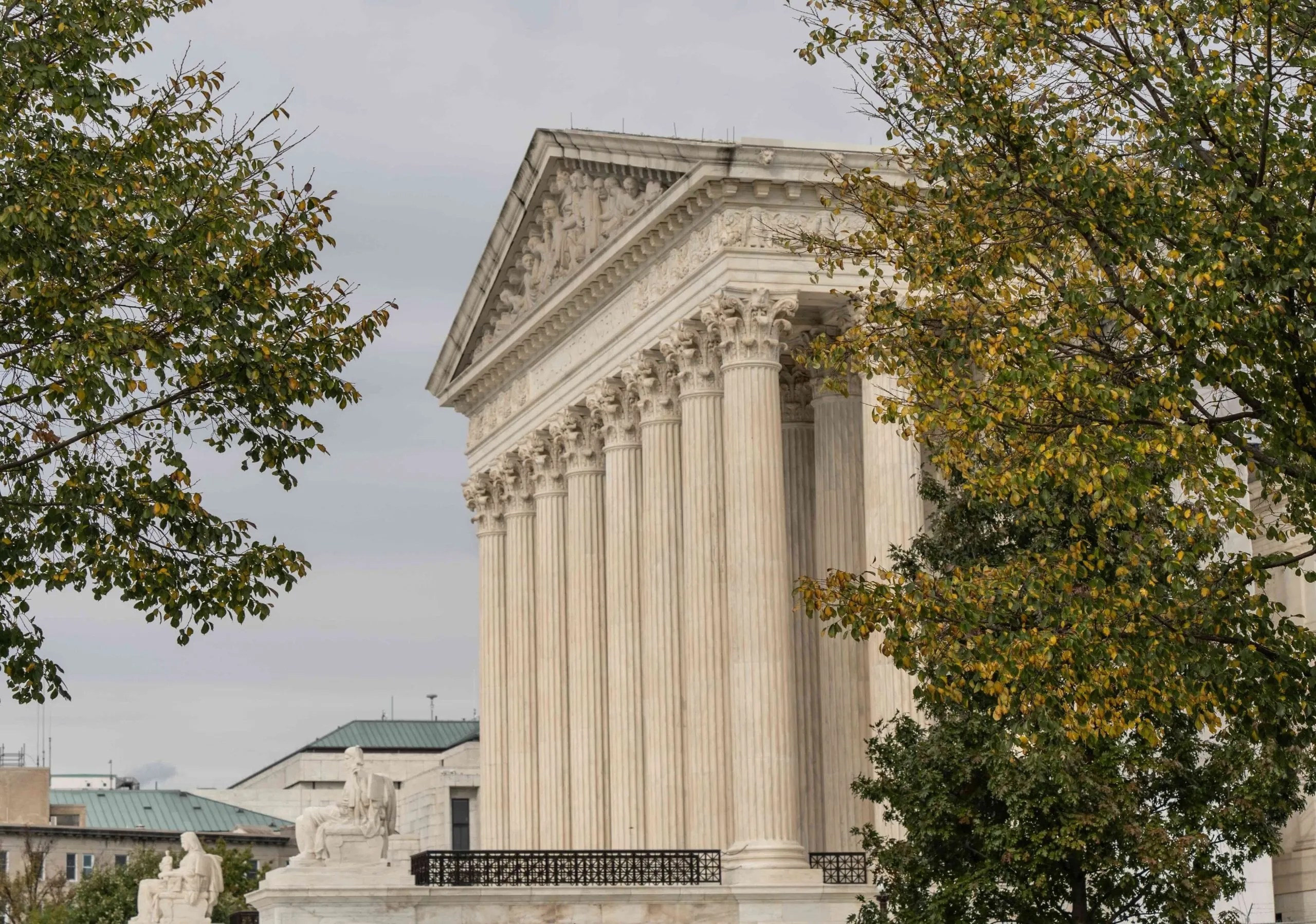The Supreme Court and the world of sports


The Supreme Court’s 2025-26 term is shaping up to be a significant one for the sports world. The justices have already agreed to hear two sports-related cases, and they will soon have a chance to take up another.
In the already granted cases, Little v. Hecox and West Virginia v. B.P.J., the court will weigh state-level eligibility rules for girls’ and women’s sports. Specifically, the justices will debate whether laws barring transgender athletes from participating on girls’ and women’s teams violate the 14th Amendment’s equal protection clause or Title IX, a civil rights law prohibiting sex discrimination in federally funded educational programs.
And with the pending cert petition in National Basketball Association v. Salazar, the justices have a chance to debate sports leagues’ digital operations. The case stems from the videos, including game highlights, that the NBA shares online. The man who filed the lawsuit claims the NBA violated the Video Privacy Protection Act, a law preventing businesses that market audiovisual content from disclosing customer data without the customer’s consent, by sharing his viewing history with Meta, Facebook’s parent company. The NBA, which lost in front of the U.S. Court of Appeals for the 2nd Circuit, contends that it isn’t subject to the VPPA, which it says was designed to regulate video rental companies like Blockbuster.
The cases on transgender athletes are expected to be among the most closely watched of the term, and the court’s eventual rulings will likely hold consequences for any state that has passed a law on transgender athletes. Meanwhile, the NBA – as well as the NFL, which filed a “friend of the court” brief in support of the NBA’s cert petition – has said that, unless the justices overturn the 2nd Circuit, it would have to overhaul its online operations to satisfy the VPPA’s rules on the treatment of customer data, potentially limiting basketball fans’ access to what is currently free and widely available video content.
But the 2025-26 term isn’t the court’s first foray into the world of sports. Far from it. In just the past 25 years, four professional sports leagues, a professional golf tour, and the NCAA have been directly involved in Supreme Court cases, and other leagues have had to adjust their operations in response to the rulings.
Professional golf
The case PGA Tour v. Martin sat at the intersection of sports and disability rights. It was a dispute between the world’s most famous professional golf tour and one of its players, Casey Martin, who, because of a circulatory disorder, was seeking the right to use a golf cart while competing in tour events.
Martin contended that, in refusing him a cart, the PGA Tour was violating the Americans with Disabilities Act. The PGA Tour countered that golf courses, when used for a professional competition, were not places of public accommodation as defined by the act and that allowing Martin to use a cart while other players walk would fundamentally change the competition.
In May 2001, the Supreme Court ruled, 7-2, for Martin, in an opinion that had much to say about the history and current state of the sport of golf, including the role of carts in the game. “Originally, so few clubs were used that each player could carry them without a bag. Then came golf bags, caddies, carts that were pulled by hand, and eventually carts that carried players as well as clubs,” wrote Justice John Paul Stevens for the majority.
Stevens concluded that “the walking rule is not an indispensable feature of tournament golf” and so the PGA Tour could allow Martin to use a cart without affecting the nature of the competition. The ruling had a relatively limited impact on the sport, however, since it’s rare for a player who qualifies to participate in a tournament to also qualify for an accommodation under the ADA.
The NFL
In 2010, the court took on the issue of sports merchandising deals. American Needle v. National Football League stemmed from an agreement made between the NFL and Reebok, but the ruling held consequences for multiple leagues and apparel companies.
The lawsuit was brought by American Needle, a hat company that had sold caps featuring NFL team logos before the NFL struck an exclusive deal with Reebok. American Needle contended that the NFL’s 32 teams were all separate entities and that they had violated the Sherman Antitrust Act by shutting down their individual markets in favor of an all-inclusive deal. The NFL, on the other hand, said that it wasn’t a collection of 32 individual entities and was, instead, a single entity for the purposes of the Sherman Act.
The Supreme Court unanimously ruled for American Needle, determining that the NFL should not be viewed as a single entity because each team is “a substantial, independently owned, independently managed business.” The decision made clear that the league wasn’t exempt from antitrust litigation and therefore needed to tread carefully when making league-wide decisions about player salaries, ticket costs, and team gear. The U.S. Court of Appeals for the 9th Circuit cited American Needle in a 2019 ruling against the NFL and DirecTV regarding how league-wide media deals are negotiated.
Sports betting
In May 2018, the Supreme Court sent shockwaves through the sports landscape when it opened the door to nationwide sports betting with its ruling in Murphy v. NCAA.
At issue in the case was whether a federal law barring most states from authorizing betting on athletic competitions violated the Constitution’s anticommandeering rule, the part of the 10th Amendment that aims to prevent the federal government from coopting powers that are meant to rest with the states. The court said that it did, over the objections of the NCAA, NFL, NBA, NHL, and Office of the Commissioner of Baseball.
In the seven years since the decision was released, states across the country have moved to legalize sports betting. The practice is currently permitted in 38 states, according to the National Conference of State Legislatures. And in 2024 alone, legal sportsbooks across the country processed nearly $150 billion worth of bets, according to the American Gaming Association.
College sports
The NCAA was also at the center of what is perhaps the highest-profile sports-related case of the past 25 years, NCAA v. Alston, which addressed the NCAA’s rules for athlete compensation.
In June 2021, the court unanimously held that the NCAA had violated antitrust laws by barring its member schools from providing any benefits beyond scholarships and stipends for books, room, and board to student-athletes. The justices said the athletes should be able to receive other education-related benefits, such as paid internships.
After the court’s ruling, the NCAA adopted a policy allowing student-athletes to profit off name, image, and likeness, or NIL, deals, a move that dramatically enhanced athletes’ earning power and reshaped the recruiting landscape. The Supreme Court’s decision also added momentum to the movement to allow direct payments from schools to athletes, something that recently came to fruition. Starting this school year, Division I programs are allowed to share revenue with athletes, so long as payments to individual athletes don’t add up to more than the annual per school cap of $20.5 million. The annual cap will increase by about $1 million each year over the next 10 years, and scholarships and other benefits that were previously available to student-athletes don’t count against it, according to the National Conference of State Legislatures.
As these recent cases illustrate, the Supreme Court is a significant force in the sports landscape. That will remain true this term, and likely well into the future.
Posted in Court Analysis, Merits Cases
Cases: American Needle, Inc. v. National Football League, Murphy v. National Collegiate Athletic Association, National Collegiate Athletic Association v. Alston, Little v. Hecox (Transgender Athletes), West Virginia v. B.P.J. (Transgender Athletes), National Basketball Association v. Salazar